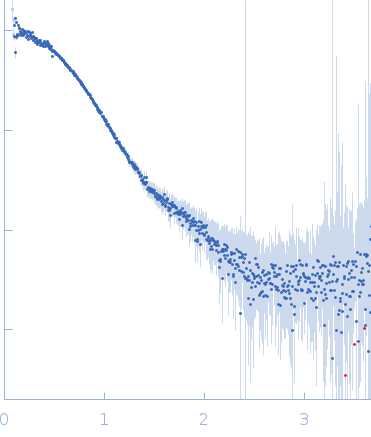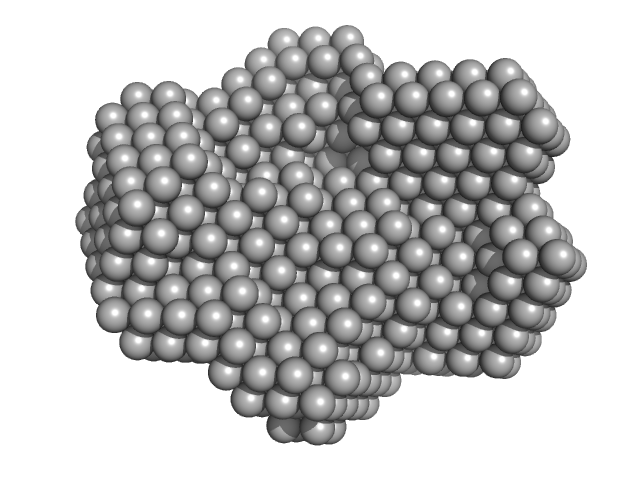|
Synchrotron SAXS data from solutions of the SH3-SH2-kinase domain from Bruton's tyrosine kinase in 20 mM Tris-HCl, 150 mM NaCl, 1 mM DTT, 2% v/v glycerol, pH 8 were collected on the 12.3.1 (SIBYLS) beam line at the Advanced Light Source (ALS, Berkeley, CA, USA) using a Pilatus3 X 2M detector at a sample-detector distance of 2 m and at a wavelength of λ = 0.127 nm (I(s) vs s, where s = 4πsinθ/λ, and 2θ is the scattering angle). Solute concentrations ranging between 1 and 5 mg/ml were measured at 20.9°C. 50 successive 0.200 second frames were collected. The data were normalized to the intensity of the transmitted beam and radially averaged; the scattering of the solvent-blank was subtracted. The low angle data collected at lower concentrations were extrapolated to infinite dilution and merged with the higher concentration data to yield the final composite scattering curve.
|
|
 s, nm-1
s, nm-1
